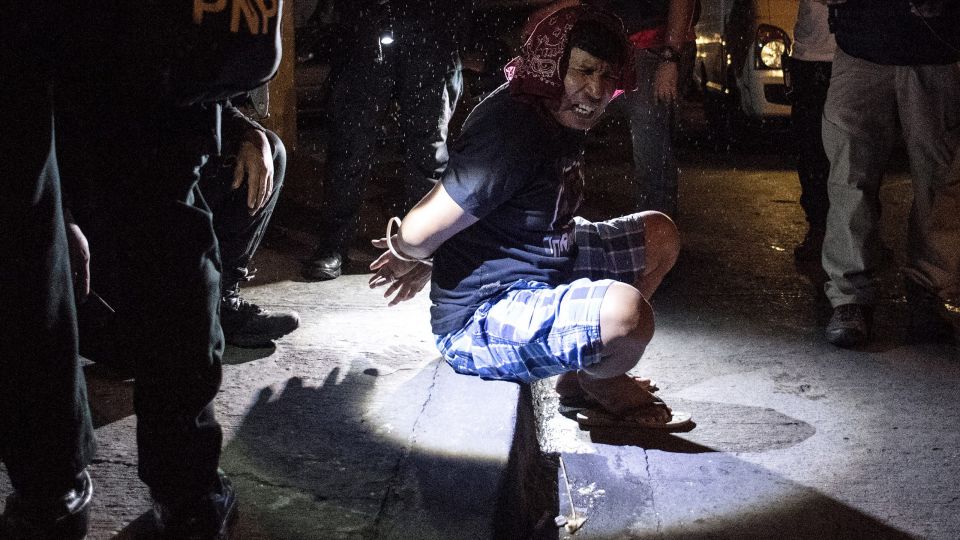November 20, 2019
A particular phrase has popped up a number of times in news from the Philippines in the past several days that is probably a mystery to much of the world.
That phrase is Oplan Tokhang, a concept that is directly related to the country’s drug war. Discussions around this idea will be something to keep an eye on in the coming weeks and months.
What is Oplan Tokhang?
First, what does it mean? The word tokhang, is a made-up portmanteau of the local words for knock (tok) and plead (hangyo) and describes police operations that were launched by the Duterte administration in July of 2016 that involved officers going door to door to root out drug-related offenders.
The phrase has become synonymous with the Duterte administration’s notoriously brutal war on drugs, with the word tokhang becoming directly associated with the killings related to the policy. The controversial policy has been suspended twice in its history—both in 2017.
Officially, the Philippine National Police admit that 6,500 people have been killed by officers in operations related to the drug war since the launch of the policy. Rights groups, however, argue that the scale of the killings may be much larger.
Human Rights Watch, for example points out that the exact number of fatalities may be impossible to determine since the government has failed to disclose documentation about its drug war. The group, however, estimates that the death toll could be as high as 23,983—a figure that takes into account the “homicides under investigation.”
These killings, unsurprisingly, have drawn international attention to the tactics used by the Duterte administration. In July of this year, the United Nations Human Rights Council adopted a resolution to prepare a report on the situation in the Philippines, particularly related to the war on drugs. Scrutiny from the International Criminal Court of the drug war earlier this year led to a withdrawal of the Philippines from that body by the Duterte administration.
Why is Oplan Tokhang in the news now?
Oplan Tokhang is in the news these days because of Philippine Vice President opposition politician Leni Robredo. Robredo has long been a vocal critic of the policy.
In late October of this year, Robredo sat for an interview with Reuters in which she criticized the policy for overwhelmingly targeted the poor rather than big drugs networks, for creating a culture of police impunity, and for simply not working.
“We ask ourselves, ‘why is this still happening?’. The president has already made very serious threats to drug syndicates, to drug lords … and yet it’s still very prevalent, so obviously, it’s not working,” Robredo told Reuters.
Duterte’s response to that interview was essentially, if you think you can do better, give it a try yourself. Six days after Robredo’s conversation with Reuters was published, Duterte said he would give Robredo “full powers” over the government’s drug policies for 6 months and see what she could do. And, one week after that, on November 6, Robredo accepted the offer, officially becoming the Philippines’ new drug czar.
Almost immediately, Robredo called for the scrapping of Oplan Tokhang, labeling the deaths that have been linked to the policy as “senseless killings” and called the operation a “war against the poor.”
Robredo has indicated that in place of the brutal policies that have defined the drug war under Duterte, she would put forward a public health-oriented strategy, and that she’ll be looking for recommendations and best practices from the international community about how to do so.
What should you look out for?
Robredo has said that she is hopeful about what her new role could mean for the country’s drug policies.
“I want to look at it as a signal that the president is open to listen to fresh perspectives about the entire campaign,” Robredo said in her first meeting in charge of a task force on narcotics.
Presidential spokesperson Salvador Panelo has said that President Duterte will give Robredo “everything” to help her fight illegal drugs, adding that the Vice President has “free rein” as co-chair of the Inter-Agency Committee on Anti-Illegal Drugs.
The VP’s supporters, however, have been less optimistic, expressing concerns that the new position is a trap set up for Robredo to fail publicly.
One sign of trouble between Robredo and Duterte on the drug front has already made headlines. Duterte announced publicly that Robredo would be removed from this position if she were to share state secrets with foreign individuals or entities—presumably a reference to ongoing drug war-related investigations by the United Nations and the International Criminal Court.


